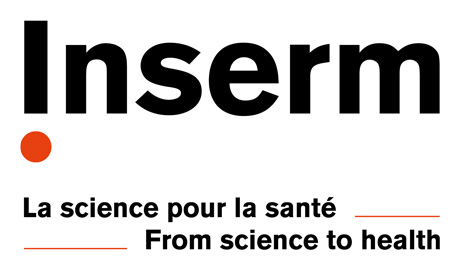





| Intitulé | POST-DOCTORAL POSITION IN THE NEUROBIOLOGY OF REWARD IN ANOREXIA NERVOSA | Nom des encadrants et leur grade | Dr Virginie Tolle : virginie.tolle@inserm.fr
| |
| Date de fin de publication | 31/10/2020 | Type de contrat | CDD (initial period of 18 months with possibilities of extension)
| |
| Date de début de fonction | Automne 2020 | Rémunération brute mensuelle | ||
| Organisme | IPNP (Paris, France) | Contact | Dr Virginie Tolle : virginie.tolle@inserm.fr
| |
| Financement | collaborative program funded by Agence Nationale pour la Recherche (ANR) | Fin | 30/04/2022 (prolongation possible) |
Position
A post-doctoral position on the role of metabolic sensors in the neurobiology of reward in anorexia nervosa is available in the team “Genetics of Psychiatric and Addictive Disorders” (Gorwood’s team, project coordinated by Dr Virginie Tolle) at the Institute of Psychiatry and Neuroscience of Paris (https://ipnp.paris5.inserm.fr/). IPNP is dedicated to research on translational neuropsychiatry and offers onsite access to cutting-edge mouse behavioral phenotyping and neuronal imaging platforms necessary for the current project.
This project is part of a collaborative program funded by Agence Nationale pour la Recherche (ANR) and involves two teams having complementary skills in the neuroendocrine control of feeding and neurobiological mechanism of reward. This fundamental project is also part of a translational program and involves interactions with clinicians for optimal mouse to human translation of data. The position is available from October 2020 for an initial period of 18 months with possibilities of extension.
Post-doctoral project
Anorexia Nervosa (AN) is a complex and multifactorial psychiatric disorder characterized by voluntary food restriction and hyperactivity. Underlying mechanisms are largely unknown and no effective therapeutic targets has been identified so far. Furthermore, there is no rodent model to mimic all the core symptoms of the disorder. Our team has recently demonstrated that AN is a disorder of both psychiatric and metabolic etiology, and that abnormalities in the reward system contribute to the chronicity of the disorder. Thus the main objective of this post-doctoral project is to investigate neurobiological mechanisms involved in reward abnormalities, and their metabolic triggers, in AN. The project will be conducted on a new mouse model that combines known genetic and environmental risk factors for AN. The post-doctoral fellow will use a combination of behavioral phenotyping, genetics/chemogenetics, in vivo imaging and biochemical assays in the mouse.
Required education/skills
Highly motivated candidates should hold a PhD in Neurosciences (or related field) and have a strong background in the neurobiology of reward and/or neuroendocrinology. Prior experience in mouse genetics and mouse behavioral phenotyping (cognition, reward) is recommended. Expertise in mouse stereotaxic surgery, neuroanatomy and neuronal imaging is also welcomed. The candidates should have excellent communication skills as the project involves a collaborative work between 2 labs and a clinical team.
Selected publications of the collaborative teams:
 Duriez P, et al. Trends Endocrinol Metab. 2019 Dec;30(12):915-928.
Duriez P, et al. Trends Endocrinol Metab. 2019 Dec;30(12):915-928. Watson HJ, et al. Nat Genet. 2019 Aug;51(8):1207-1214.
Watson HJ, et al. Nat Genet. 2019 Aug;51(8):1207-1214. Fernandez G, et al. Endocrinology. 2018 Feb 1;159(2):1021-1034.
Fernandez G, et al. Endocrinology. 2018 Feb 1;159(2):1021-1034. Hassouna R, et al. Front Neurosci. 2017 Apr 20;11:211.
Hassouna R, et al. Front Neurosci. 2017 Apr 20;11:211. Gorwood P, et al. Front Neurosci. 2016 Jun 29;10:256.
Gorwood P, et al. Front Neurosci. 2016 Jun 29;10:256. Clarke J, et al. Transl Psychiatry. 2016 Jun 7;6(6):e829.
Clarke J, et al. Transl Psychiatry. 2016 Jun 7;6(6):e829. Hassouna R, et al. Mol Cell Endocrinol. 2016 Dec 15;438:42-51.
Hassouna R, et al. Mol Cell Endocrinol. 2016 Dec 15;438:42-51. Denis RG, et al. Cell Metab. 2015 Oct 6;22(4):646-57.
Denis RG, et al. Cell Metab. 2015 Oct 6;22(4):646-57. Méquinion M, et al. Am J Physiol Endocrinol Metab. 2015 Feb 1;308(3):E241-55.
Méquinion M, et al. Am J Physiol Endocrinol Metab. 2015 Feb 1;308(3):E241-55. Hassouna R, et al. Endocrinology. 2014 Sep;155(9):3561-71.
Hassouna R, et al. Endocrinology. 2014 Sep;155(9):3561-71. Cansell C, et al. Mol Psychiatry. 2014 Oct;19(10):1095-105.
Cansell C, et al. Mol Psychiatry. 2014 Oct;19(10):1095-105.
Date début de fonction : Automne 2020